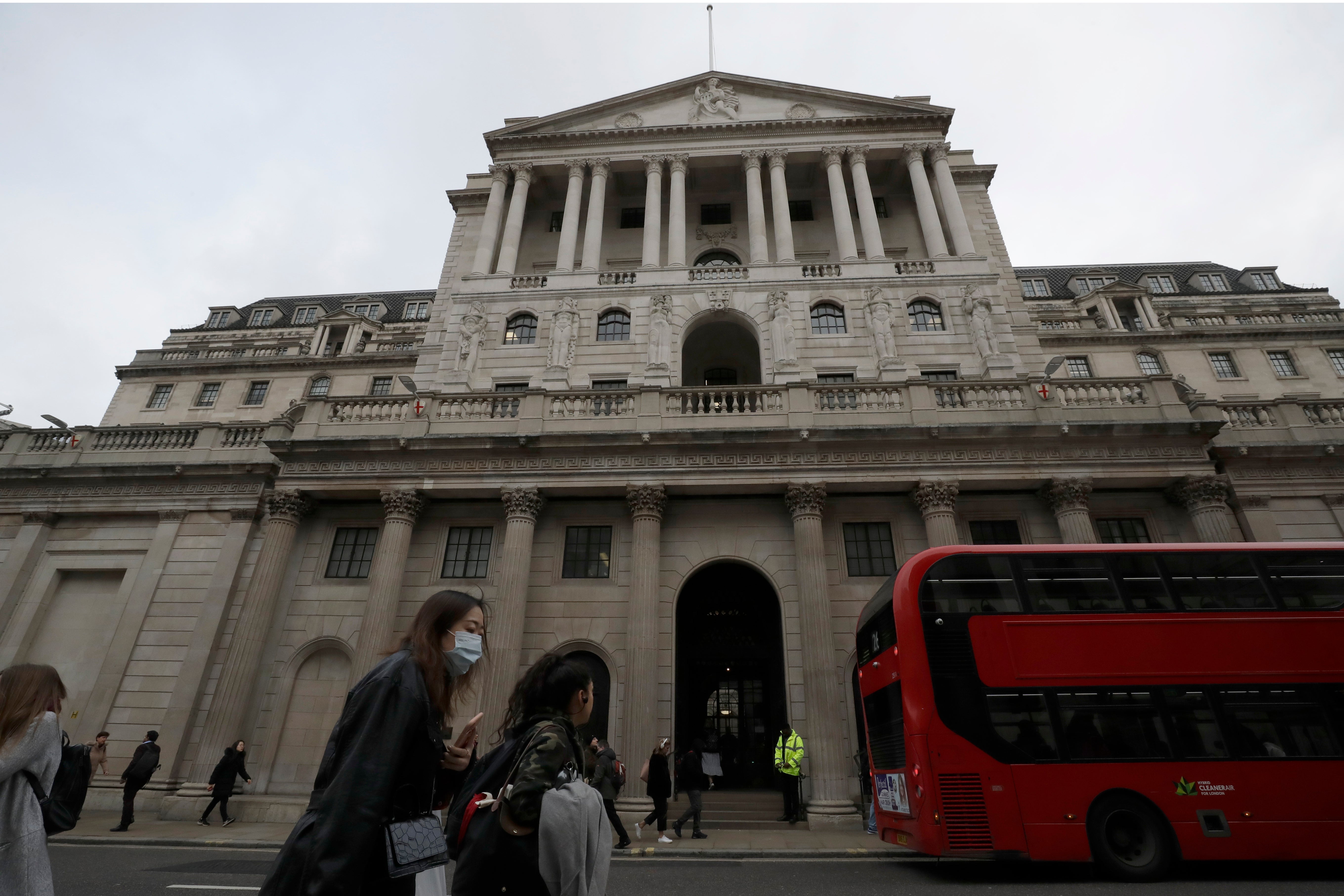Bank of England in the spotlight as interest rate debate heats up
The return of inflation comes as public satisfaction in the Bank of England has fallen to its lowest since it gained independence, meaning it must focus on its primary targets, writes Phil Thornton


Former chancellor Gordon Brown’s decision to hand over the power to set interest rates to the Bank of England is one of the most longstanding and impactful economic legacies of the New Labour administration.
With a stroke of a pen almost a quarter of a century ago, the days when the Treasury could lower rates in the run-up to an election were gone. In its place came a committee of nine economists whose every word has been intensely scrutinised for hints of their next move.
That system was tested immediately when a surge in pressure that had built up ahead of the 1997 election prompted the Bank to hike rates from 5.9 per cent to 7.25 per cent by October 1998. More recently it was at the centre of a political storm when it cut rates to a historic low of 0.25 per cent following the public vote to leave the European Union.
The Bank is again heading into tricky waters as it weighs up evidence of short-term pressures pushing up prices against its forecast that demand and supply are expected to return broadly to balance.
The scale of the challenge was thrown into sharp focus on Friday when the bank’s quarterly survey of attitudes to inflation found just 33 per cent were satisfied with the job the Bank was doing, the lowest since the survey began in November 1999.
This week will see a return to a nine-strong monetary policy committee (MPC) making the monthly decision after Huw Pill replaces Andrew Haldane as chief economist, who had left before the August meeting, while former OECD chief economist Catherine Mann succeeds independent member Gertjan Vlieghe.
The change of personnel should not impact the outcome of Thursday’s meeting. It is almost certain the committee will vote nine-nil to keep the Bank Rate on hold at 0.1 per cent, and by eight-one to keep the quantitative easing (QE) target unchanged — with Michael Saunders sticking with his vote to reduce it and so end the programme early. A last-minute shock cannot be ruled out, however.
The more pertinent question is whether the minutes of Thursday’s meetings reveal where the members stand on whether the forward guidance on the criteria for tightening monetary policy have been met.
For some time, the MPC has said it does not intend to tighten monetary policy at least until there is clear evidence that “significant progress is being made in eliminating spare capacity and achieving the 2 per cent inflation target sustainably”.
Governor Andrew Bailey told MPs on the Treasury Select Committee this month the committee was split “four-all” on whether this has been met. Half the committee thought it had not, while the others thought it had — but that that was not a sufficient condition to tighten policy.
Bailey’s comments have reignited the debate over individual members’ views that had been a constant theme before the financial crisis and Covid-19 pandemic led to a more consensual view.
Elizabeth Martins, a senior economist at HSBC, sees the split as Saunders, Bailey, Ben Broadbent and Ramsden on the hawkish side — those with an eye on tightening policy — and Jon Cunliffe, Jonathan Haskel, Silvana Tenreyro and Vlieghe on the dovish wing,
She suspects that Mann, a former chief economist at the OECD, will join the “doves” in a swap with her predecessor, Vlieghe. In earlier comments to MPs she said she did not see an inflation “spiral”.
However Pill, who spent much of his career at the European Central Bank, may emerge as a “hawk”. Before the pandemic he authored a chapter in a book by NIESR calling for limits on the Bank’s use of “novel or non-standard policy instruments” implying he would like to see QE withdrawn.
Expect a return, therefore, to close analysis of the data. Last week showed inflation surging to a nine-year high of 3.2 per cent in August. However monthly economic growth slowed to 0.1 per cent in July compared with 1.0 per cent in June while retail sales fell for the fourth consecutive month in August.
Kallum Pickering at Berenberg Bank believes a longer run inflationary backdrop will require a gradual normalisation of monetary policy. He is pencilling in a hike as soon as May 2022, as does HSBC.
The Treasury’s survey of economists’ forecasts this month showed that out of 34 institutions, 14 saw the Bank Rate at at least 0.2 per cent by the end of 2022 with forecasts ranging from 0.25 to 2.0 per cent.
When the government last held the power to set rates, it was known as the Ken and Eddie Show, after then-Chancellor Ken Clarke and Bank Governor Eddie George.
This will not be a revival as the Rishi (Sunak) and Andrew (Bailey) Show, but central banks have found themselves drawn further into the political arena. The £895bn of QE has made the Bank a significant player and led to accusations that it is monetising government debt.
In March this year, the government widened the Bank’s mandate to reflect the government’s “economic strategy for achieving strong, sustainable and balanced growth that is also environmentally sustainable and consistent with the transition to a net zero economy”.
As it grapples with meeting the inflation target and maintaining financial stability, the Bank will be forgiven for thinking that life was easier as an adviser to the government rather than being under public pressure to curb inflation.


Join our commenting forum
Join thought-provoking conversations, follow other Independent readers and see their replies
Comments